|
Like millions of other fans, I read and loved the Harry Potter series by J.K. Rowling when it came out nearly three decades ago.
It was precisely because I had so enjoyed the original books that I was hesitant to read the latest installment, Harry Potter and the Cursed Child. I was concerned that this might be a case of the author not knowing when to stop. The last novel had ended on a good note; why keep going? I was also a bit worried because I’d heard the story dealt with time travel and changing events that had occurred during the first seven books. Personally, I’ve never been a fan of time-travel as a solution for problems. Don’t expect to see any of that in my books! Aside from the fact that it’s more of a sci-fi trait than strictly fantasy, fixing the past is too easy and often has disastrous consequences. But fixing the future by learning to live with the past – now that’s a challenge ;-). And that’s the kind of approach I prefer to take with my novels. However, hesitations notwithstanding, I did take the plunge and read the eighth Harry Potter book. Or rather, I read the script for the play, as that is the format the story is published in. And I am happy to report that all of my fears and concerns were for naught! Harry Potter and the Cursed Child is a delightful tale that follows Harry’s second son, Albus, and Draco Malfoy’s son, Scorpius, on a time-twisting adventure as they “attempt” to correct the mistakes of the past, while learning valuable lessons on what can and cannot be changed (including their relationships with their own fathers). I loved this story :D. It was adorable to see beloved characters now dealing with the challenges of parenting – sometimes, raising kids can be just as difficult as fighting the Dark Lord himself! Plus, the new characters were fun. Scorpius was my favorite – he may be Draco’s son, but he has a totally different personality. On top of that, this addition to the series was a wonderful example of the power of friendship. Scorpius and Albus prove the importance of standing by your friends, no matter what. Even the older characters – particularly Draco himself – comment on the value of having good friends by your side. Oddly enough, friendship is one topic that I feel I haven’t explored very thoroughly in my own books. Sure, we see elements of Alex and Jesse’s friendship, both during The Heart of Everything as well as Beyond the Soul, but it’s more of a tangential theme and not part of the main story arc. Of course, since my preference is romance, it makes sense that I would focus on that element above any others. But perhaps someday I’ll branch out and weave stronger subplots into the webs of my works ;-). What do you think? Share your thoughts in the comments section! Until the next time, keep reading! P.S. – If you enjoyed this post, please share it with your friends! Here’s a link: https://www.lynnwallaceauthor.com/blog-on-books-and-writing/harry-potter-and-the-cursed-child-the-legend-continues P.P.S. – Don’t forget to follow me on Facebook/ Twitter/ Instagram, and sign up for my email list!
0 Comments
Kanoko Sakurakouji (or Sakurakoji, depending on which volume of the manga you look at ><; also the author of Backstage Prince) wrote another series that I love, possibly my favorite manga of all time, titled simply Black Bird. This story follows Misao, a high schooler who can see the magical creatures and spirits that are invisible to everyone else. This gift is merely an annoyance until her sixteenth birthday, when she gets attacked by a demon and discovers that she is the Senka Maiden, or bride of prophecy – a human whose blood gives unlimited power to the demon who claims her. Her childhood friend Kyo appears in time to save her, though it turns out he is a demon as well! Kyo is the leader of the Tengu (crow demon) clan, thus the name of the story. His intentions to protect her, however, seem to be pure – and Misao allows him to lick her wounds long enough to fall in love with him herself. Together they must face the challenges that come from courting the Senka Maiden, as well as the curse that befalls her once she bears the child of a demon. This was a fantastic story! The characters were well done with bold personality traits: we can clearly see Kyo’s determination, his brother Soh’s treachery and underhandedness, the Daitengu’s loyalty, even Misao’s simultaneous naivety and bravery. And I absolutely loved the plot. Unlike Demon Spell (another manga featuring demons of Japanese culture), the story was very complete, with no detail left unexplained or unaccounted for. But my favorite part of all has to be the ending. Misao’s pregnancy is meant to lead to her death, but just when all seems to be lost, hope appears. Even if their ending isn’t perfect, it is happy, and you find yourself happy and grateful for the imperfection because it shows you how much worse things could have been. A few of the elements in this story bring to mind my sequel, Beyond the Soul. Even though Kyo is a crow demon, the blood play displayed between Kyo and Misao as he licks her injuries (for healing purposes) brings to my mind the relationship of a vampire with a human (though Alex and Clarity share much less blood in my book). The parallels continue as the stories end, because just as Kyo is on the verge of losing Misao and must give of himself to save her, so Alex finds that he must make a similar sacrifice in order to revive Clarity. In both cases, there is a moment when all is lost before hope is found once more. Also in both cases, the conclusion brings forth gratitude that the characters have finally arrived at their happy ending, however perfect or imperfect that ending may be ;-). At least, I hope my novel shares these wonderful characteristics, and I hope more of my future stories do as well! I love endings that feel as if the story is completely wrapped up with no loose ends, and I love happy endings that make you feel glad that the characters fought long and hard enough to make it to their own place of joy and contentment. Keep reading with me, and let me know if that’s what you see in my books! What do you think? Share your thoughts in the comments section! Until the next time, keep reading! P.S. – If you enjoyed this post, please share it with your friends! Here’s a link: https://www.lynnwallaceauthor.com/blog-on-books-and-writing/black-bird-when-a-story-has-it-all P.P.S. – Don’t forget to follow me on Facebook/ Twitter/ Instagram, and sign up for my email list! I’ve done previous posts on the works of Charlie N. Holmberg – namely the stand-alone novels that got me hooked, but also the realism in her books, the mystical The Will and the Wilds as well as another trilogy of hers – which were all absolutely fantastic. It’s sad to admit how long it took me, but I *finally* got around to reading the books that started her writing career – a three-book series comprised of The Paper Magician, The Glass Magician, and The Master Magician. The Paper Magician series follows Ceony Twill, a new apprentice in Folding – the magical discipline of bespelling paper. Ceony doesn’t want to be a Folder – she had hopes of being a Smelter, or someone who practices magic with metal – but England is running low on Folders, so she is assigned to study under Magician Emery Thane. Fortunately, Ceony learns from Thane that the magic of Folding is far from boring or useless; from animated mail-birds to paper chains of protection to story illusions, Ceony finds herself delighted with her new field of study. Unfortunately, Thane’s ex-wife Lira, an Excisioner – someone who practices dark magic using human flesh – shows up and *literally* takes the heart from the confines of Thane’s chest. Ceony must get it back, and finds herself having to walk through the chambers of her mentor’s heart in order to do so… Not only does this lead to Ceony falling in love with her teacher (he returns the sentiment, luckily), but also to new discoveries about using magic as both Ceony and Thane must defeat Lira and her partners before all they hold dear is destroyed. Like all her works, I found this series to be quite enjoyable. However, I did feel these books were a bit… simple. The plot lines felt shorter; but as these were her debut novels, I’m not judging too harshly. I will say that I didn’t care much for the student-teacher love story or the large age gap between partners – Ceony is merely nineteen when the first book begins, and Magician Thane in his thirties. I’m not going to cast moral aspersions – nothing illegal is going on, and besides, God’s love for us proves that love has no boundaries – but it’s not my thing. I prefer my stories between two consenting adults of roughly the same age and phase of life; though I suppose one could argue that Jesse and Alex from The Heart of Everything and its sequel were MUCH older than Emer ><, but at least they all appeared the same age physically! What I found really intriguing was the concept of magic based on certain materials – The Paper Magician series holds that magic can only be done on man-made materials (glass, paper, fire, plastic, etc), and once a magician is bonded to a particular material, they can use that material and that material only. Like my novels, it reflects a sense that magic is limited and not all-powerful (and certainly not so when compared to God). For instance, in The Heart of Everything we see Emer faint several times from using magic because the human body is weak and not meant to wield such power; in Beyond the Soul, Clarity’s “gift” comes at the price of her own eyesight. It’s a good reminder that magic isn’t the solution to all our problems ;-). What do you think? Share your thoughts in the comments section! Until the next time, keep reading! P.S. – If you enjoyed this post, please share it with your friends! Here’s a link: https://www.lynnwallaceauthor.com/blog-on-books-and-writing/the-return-of-charlie-n-holmberg P.P.S. – Don’t forget to follow me on Facebook/ Twitter/ Instagram, and sign up for my email list! One of the more unique books I've read was Every Day by David Levithan. In this novel, the main character, "A" as he calls himself, wakes up each morning in the body of a different person. Having no physical form to call his own, he "borrows" the body and life of someone else every day – whether male or female, black or white, gay or straight, rich or poor. The body he wakes up in is random and A has no control over where he will end up. This kind of life provides a variety of experiences – more than anyone else typically has in only one body – which isn’t so bad, until he falls in love. Suddenly his body shifting becomes a challenge as he struggles to find a way to be with the girl he loves despite being a new person each day. Because of the form of the book, the author has a unique perspective to write from. The story follows a basic plotline – the goal of being with Rhiannon again – but because A is a new person each day, most of the details focus on what he observes as a "stranger" or "outsider" to what we consider a normal life. Some of it is bits of truth or wisdom, but for the most part he gives us candid observations of reality, as the world we take for granted is analyzed by someone who lives in it without actually being a part of it. For example, "Kindness connects to who you are, while niceness connects to how you want to be seen" (Day 5997), or "Part of growing up is making sure your sense of reality isn't entirely grounded in your own mind" (Day 6005), and particularly noteworthy: "There will always be more questions. Every answer leads to more questions. The only way to survive is to let some of them go" (Day 6017). Using characters with unusual outlooks to give insight into the world around us is something I enjoy adding here in there in my own books (though, sadly, none of my characters are quite as unique as A, so I'm not able to include nearly the same volume of observations). For example, the longevity of Alex and Jesse allows them to "see" the world differently than more contemporary characters. We read this especially in Beyond the Soul, since it is told from Alex's point of view; a particular example would be Alex's comments at the beginning of the novel in regard to the encroachment of man into nature. But even throughout the book we can see hints of Alex's unusual perspective as he observes his friends and makes notes of how the times have changed. It is unique characters such as these that often teach us the most, as they reveal to us what goes unnoticed in our day-to-day lives. What do you think? Share your thoughts in the comments section! Until the next time, keep reading! P.S. – If you enjoyed this post, please share it with your friends! Here’s a link: https://www.lynnwallaceauthor.com/blog-on-books-and-writing/every-day-the-power-of-observations P.P.S. – Don’t forget to follow me on Facebook/ Twitter/ Instagram, and sign up for my email list! Sometimes I find myself sitting in our home library with my eyes simply roving over the shelves of our book collection, admiring the vastness and variety (not unlike Emer does in Alex’s cabin in the early chapters of The Heart of Everything.) And there are times when a title captures my attention and I end up reminiscing on the books of my past. Which is what inspired today’s post – two of the novels by author Eva Ibbotson. The first, The Secret of Platform 13, is middle-school age adventure featuring an unlikely group of heroes going to rescue a prince kidnapped from a magical island. The other, A Countess Below Stairs, is a young adult romance that follows a young Russian noblewoman after the days of the Russian Revolution. While these two stories may seem to have nothing in common, both are charming and delightful books, with equally charming and delightful heroines. What I really love is how these leading ladies are not your typical “princess” types. Odge from The Secret of Platform 13 is a young hag – that’s a race, not an insult – with two different color eyes, one blue tooth, the beginning of an extra toe and a rather fierce scowl. She’s brave and strong and determined to do her family proud by becoming the most fearsome hag ever – proving once and for all that it’s okay for girls to want to be something other than a ballerina when they grow up. Anna, on the other hand, is a surprisingly unspoiled Russian countess. She’s constantly talking, totally self-assured in any situation (whether it’s an inappropriate proposition in the middle of the night, serving tea to a cantankerous old man, or pretending to be a maid to earn money for her family), and amazingly not afraid to get her hands dirty. They are completely unique and exactly the kind of characters I’d want to be friends with. Now, I’m not saying that I don’t like a classic princess as well, but seriously, what can we really say about Buttercup from The Princess Bride other than that she’s beautiful? Even Bella Swan of Twilight had less personality than what I would have expected from the person who captivated the enigmatic Edward Cullen. Too often, our leading females aren’t much more than a pretty face – and it’s refreshing to find stories where looks aren’t necessarily the first thing you remember about the girl. This is something I try to replicate (to a degree) in my stories – only my readers can tell me if I’ve succeeded. Emer may be shy and unsure of herself, but she’s surprisingly accepting of her new “friends” and braver than she gives herself credit for. Similarly, the priestess herself is quite tolerant of outcasts, as well as being patient and kind. Clarity, on the other hand, is completely confident in herself (thanks to her Sight) and possesses her own form of wisdom. And that’s only the beginning. Granted, my characters may never be quite as colorful as Eva Ibbotson’s – being “pretty” remains as one of their defining features, I admit – but hopefully they still stand out in their own way. What do you think? Share your thoughts in the comments section! Until the next time, keep reading! P.S. – If you enjoyed this post, please share it with your friends! Here’s a link: https://www.lynnwallaceauthor.com/blog-on-books-and-writing/eva-ibbotson-fascinating-female-leads P.P.S. – Don’t forget to follow me on Facebook/ Twitter/ Instagram, and sign up for my email list! Backstage Prince by Kanoko Sakurakoji is a short (only 2 volumes!) but adorable manga featuring a love story in the world of kabuki theater. Akari, a high-school girl who is clueless about both boys and kabuki, finds herself roped in as the assistant to gorgeous Ryusei, a famous young kabuki actor. But what starts as a simple assignment turns into something deeper as both of them realize the depth of their feelings and need for each other, despite the drama that comes from balancing love with an entertainment career! The story isn’t long or complex, but it’s endearing in the way it captures the miracles that love can perform. Akari and Ryusei are totally different people from completely different worlds: she’s a happy and cheerful student living an ordinary life, while he is antisocial and grouchy, despite his good looks and his fame as an actor. Yet, they find peace and contentment in being together, and the connection they forge allows both of them to grow. Ryusei’s acting ability improves, and his reliance on Akari gives him the emotional release and strength that allows him to expand his range as a performer. Akari doesn’t develop new skills or discover any hidden talents, but finding that she alone can provide the stability and comfort Ryusei needs to fully pursue his career allows her to see that even someone ordinary can play an extraordinary role. It’s a wonderful example of how love can bring out the best in anyone. That simple but sincere message is something I tried to capture in Beyond the Soul, when we see Jesse and Emer again, this time as a married couple. Many things have changed, primarily Jesse’s behavior – from the hot-headed Viking with violent tendencies that we saw in The Heart of Everything, there’s now a sense of patience and maturity. Alex comments several times throughout the story how his best friend has changed, and seeing how love has improved a “barbarian” is one of the influences that allows Alex to finally let go of his own feelings for Emer and pursue a relationship with someone new. After a decade of marriage, I fully believe that love in a committed relationship can truly bring out the best in anyone. God tells us that “the two shall become one flesh” in marriage (Mark 10:6-9), so the love stories I write will always reflect the goodness and beauty that comes from loyalty in love! What do you think? Share your thoughts in the comments section! Until the next time, keep reading! P.S. – If you enjoyed this post, please share it with your friends! Here’s a link: https://www.lynnwallaceauthor.com/blog-on-books-and-writing/backstage-prince-love-brings-out-the-best P.P.S. – Don’t forget to follow me on Facebook/ Twitter/ Instagram, and sign up for my email list! After I released my anthology, The Supernatural Reasons Why I Love You, I featured a blog post that described the different inspirations for several of the short stories. I'd like to continue that explanation today, by exploring the names and titles I've used in my works so far. The title for The Heart of Everything was actually the name of an album by Within Temptation. When I discovered their music (which I love; it reminds me of Nightwish, one of my favorite groups), the phrase itself just struck me. The Heart of Everything – wasn’t that exactly what this book meant to me, after a decade of dreaming? Then came the sequel. Remember the piano piece “Heart & Soul”? I realized that’s exactly what Jesse and Alex were: heart and soul. Since Jesse had the “heart” already, that meant Alex’s story needed “soul” in the title, and so “Beyond the Soul” was the result. And it’s not just the names of the books themselves that have special meaning. Those who read my blog post on Juliet Marillier may recall that is where I found Emer’s name. The priestess (whose actual name is used only one time in the entire story arc, I might add) got her name from a tweaking of my own. Clarity really did get her name from a song: “Clarity” by Zedd (featuring Foxes). And the boys, too: Jesse’s last name, Djevelen, means “devil” in Norwegian. Alex’s surname, Naktis, is Lithuanian for “of the night.” (The idea is that they would have chosen those names themselves – family names weren’t common until more like 1300-1400 AD, long after the start of their stories – so I tried to picked names based on the culture/ region they each would have been raised in.) It wasn’t just the names of my characters that had influential sources. Jesse (both his looks and his name) were based on a particular member of the boy band Dreamstreet that I had a crush on when I was about 12. “Jesse” went from being a singer to being my imaginary boyfriend (yes, I had one of those growing up – don’t judge) to playing the starring role in my first book. Alex, of course, had to be the equal-yet-opposite force to Jesse, but I can also say he’s my version of Edward from the Twilight novels. Also, Emer and the priestess had “inspirations” – namely, myself XD. Emer is the version of myself when I was in college/ fresh out of college (insecure, not very confident, bad at making decisions). The priestess is the best version of myself, the version I’ve striving to become – she’s kind and patient at all the times when I am NOT those things. Even Clarity, the girl Alex gets (spoiler alert!) comes from me – she’s more like I am now, after having gained some real-world experience and self-confidence. Great names have to come from somewhere. They can be invented from thin air, certainly, but as the first part of a story or character that the reader encounters, I feel the name has to mean something special. I especially want it to be meaningful to me, as I craft an entire tale around it. I’m sure I’ll have more to share down the road about the names and titles of future books! What do you think? Share your thoughts in the comments section! Until the next time, keep reading! P.S. – If you enjoyed this post, please share it with your friends! Here’s a link: https://www.lynnwallaceauthor.com/blog-on-books-and-writing/whats-in-the-name-under-the-influence-part-2 P.P.S. – Don’t forget to follow me on Facebook/ Twitter/ Instagram, and sign up for my email list! My first post on the Hunger Games novels by Suzanne Collins may have sounded rather negative, and might possibly have given the impression that I didn’t like the books. That actually wasn’t the case! In fact, I devoured every word and hungrily kept wanting more :-D. A big part of what kept me hanging on to every word was the author’s style. Her use of present tense (which makes you feel like you’re right there in the action) combined with a lot of short, simple sentences made the books read very much like movies. It’s no wonder these stories adapted so well to the big screen! Although, I can truly say that the focus on action predominates only the first novel in this trilogy. There is more reflection and backstory woven into volumes 2 and 3, but it serves more to emphasize Katniss’ fractured state of mind. It’s certainly well-written, but it’s the type of writing that drags you deeper into insanity rather than building you up with wisdom you can take away with you. As much as I enjoyed these books, I do love writing in the past tense for the opportunity to reflect and share the character’s deeper thoughts. Simple thoughts and sentences focused on action fit very well with Katniss’ personality as an unrefined backwater tribute and for the life-or-death situations, but I don’t know that I would be willing to forgo depth to create a faster pace. Perhaps my books just aren’t meant for the silver screen ><. I’m also not one for writing that doesn’t serve a positive purpose. I want to build my readers up and illuminate the truth with my words, not drag people down into the darkness! It’s also no secret that I’m a big fan of truly happy endings, and if you read my first post on this series, you may recall that these books don’t exactly meet my standards there. So, I guess what I’m really saying after all that, is while reading the Hunger Games trilogy was quite a thrilling experience, they’re not the type of stories I’m likely to emulate in my own works. But I have no regrets in reading them! On the contrary, sometimes it takes discovering what we don’t want to do to help us define what it is we do want to do. ; - ) What do you think? Share your thoughts in the comments section! Until the next time, keep reading! P.S. – If you enjoyed this post, please share it with your friends! Here’s a link: www.lynnwallaceauthor.com/blog-on-books-and-writing/the-hunger-games-cinematic-style P.P.S. – Don’t forget to follow me on Facebook/ Twitter/ Instagram, and sign up for my email list!
It’s not hard to see that fictional characters are often forced into the role of pawns. In a well-written story, the hero or heroine is placed in an unexpected situation, and the outcome of the adventure is dependent on how they handle – or don’t handle – what falls on their plate.
The Hunger Games novels by Suzanne Collins are a prime example of this. The main character is one Katniss Everdeen, the District 12 tribute for the annual Hunger Games who not only defeats the Capitol at their own game, but eventually (and unwillingly) leads the rest of the districts into rebellion. The “girl on fire” ignites a war that leads to change across the entire nation of Panem. But Katniss also spends the entire trilogy as some sort of pawn: as a tribute in the Games, as a mouthpiece for the Capitol, and finally as the Mockingjay for the rebels. The twists and turns of the story come from how she chooses to obey or defy each new order. Unfortunately, as the trilogy goes on, the repeated traumas Katniss endures affect her in a very real way. By the end of the series, she is little more than a broken doll; she’s still being played with, but she’s not nearly the same person as she once was. All throughout the books, we see her fight back against those seeking to dictate her actions: defying the Capitol, defying her mentor, defying the rebels, defying orders, defying expectations. And yet, her ending isn’t exactly happy. True, she’s allowed to live in peace in the remains of District 12, she has Peeta, and they even have children, but she’s still haunted by the past. She’s still suffering from PTSD, the nightmares never completely go away, and her peace of mind remains a fragile state. There’s no evidence to suggest that remaining a pawn would have made anything better, yet it’s also clear that fighting against everything didn’t gain her the freedom she was hoping for. It can be depressing to watch a character struggle against so many odds and still never find what they are seeking. But maybe the takeaway lesson isn’t simply to fight and keep fighting. Perhaps it’s a matter of choosing your battles wisely, or only fighting if you have something worth fighting for. Either way, there are limitations on what human beings can do to save themselves. What do you think? Share your thoughts in the comments section! Until the next time, keep reading! P.S. – If you enjoyed this post, please share it with your friends! Here’s a link: www.lynnwallaceauthor.com/blog-on-books-and-writing/the-hunger-games-defying-authority P.P.S. – Don’t forget to follow me on Facebook/ Twitter/ Instagram, and sign up for my email list!
Just how dark are His Dark Materials? As it turns out, pretty dark! And disappointing.
Phillip Pullman’s fantasy trilogy (The Golden Compass, The Subtle Knife, and The Amber Spyglass) follows the adventures of young Lyra and her daemon Pan (think “animal familiar”). Along with their friends – including an armored bear, several witches, an aeronaut, even a boy from our world – they travel across and between worlds in pursuit of a mysterious substance known as “Dust” that plays a key role in the preservation of life as they know it. Oh sure, it was a grand adventure with all kinds of fantastical elements: strange new creatures, windows in the fabric between worlds, miniature spies, not to mention a trip to the land of the dead. But in the end, there was a lot of sacrifice and very little gained in return. One point that irked me was the mysterious “Dust” that everyone seems to be chasing. I kept trying to find a proper definition for it; at some points it was referred to as “sin” or “experience,” so I was beginning to expect some impressive symbology once all was revealed. But in the end, it just seemed to be its own magical substance that kept balance among the universe, and I was rather disappointed that it didn’t have a deeper meaning. Another plot twist that did not sit well with me was the author’s use of a religious theme. As the story went on and we started to hear more and more about the “Authority” and making a war against Heaven, I started hoping for a C.S. Lewis-style fantasy, with a faith meaning underneath. That turned out not to be the case. Their “Authority” is not the same as our God – theirs is old and frail and (literally) withered away like dust in the wind. Their Kingdom of Heaven had an evil Regent and no savior. So naturally, I was disappointed to see what I thought would be a “Christian” story turn into something completely against what I know. To make matters worse, all the hard work and suffering and sacrifice on the part of the characters amounts to very little. True, they seal up the breaches between worlds to stop the Dust from draining into oblivion. But their trip to the land of the dead only results in a pathway for the dead to leave their dim and lifeless existence and dissolve into nothing – there is no true “heaven” or peace to be found in the afterlife. Many characters die, and Lyra and Will, who are in fact the main protagonists, don’t even get their happy ending ☹. (And you know how much I like my happy endings!) All I could think as I finished reading was, “This is what you get when you live in a world without grace.” Because without grace, without a savior to intercede on our behalf, what you see is what you get. All of our efforts fall short of perfection, and that’s exactly how this series ends. Everything they do isn’t enough to make things right, because they are only able to do things in their own power. I suppose, in some ways, reading these books made me thankful that our world is not like any of the ones in this trilogy. There is someone who overcame death on our behalf. We don’t have to struggle to build a perfect world. There is always a happily-ever-after for those who trust in the one who saves. It’s a grim picture to be sure, and it’s not a story I’d want to read again, but sometimes seeing how different the world would be without Christ is just what you need to encourage you in faith! What do you think? Share your thoughts in the comments section! Until the next time, keep reading! P.S. – If you enjoyed this post, please share it with your friends! Here’s a link: https://www.lynnwallaceauthor.com/blog-on-books-and-writing/his-dark-materials-a-world-without-grace P.P.S. – Don’t forget to follow me on Facebook/ Twitter/ Instagram, and sign up for my email list! |
My Blog:I have two passions: reading and writing. You can't write good stories without first reading good stories - that's my theory, anyway. So this is where I'll share with you the depth of those passions: background on what and why I write, as well as talking about the books that I read and how they impact my writing. Archives
June 2024
|


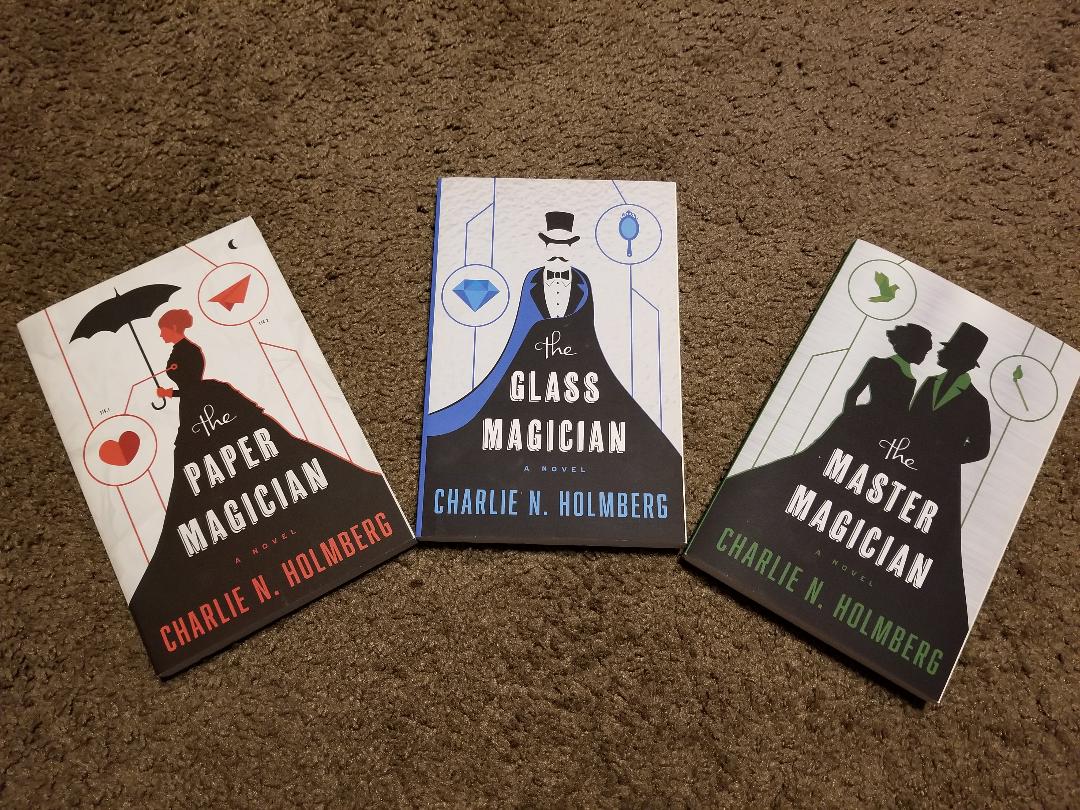
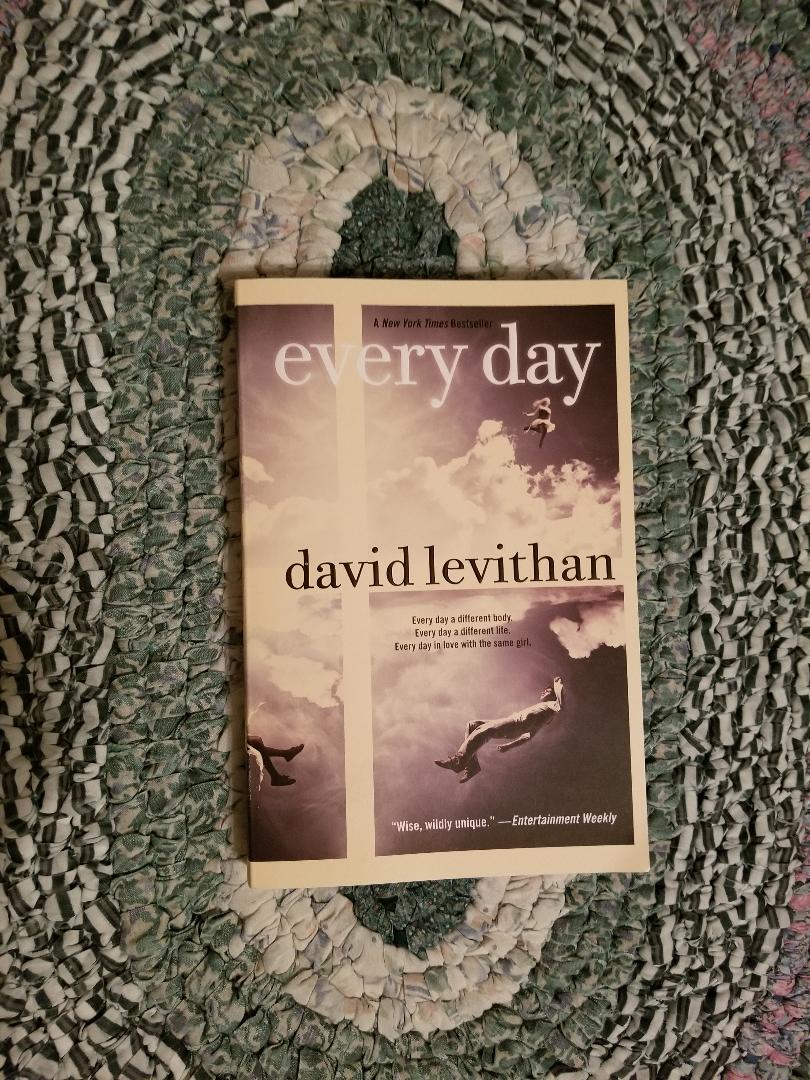
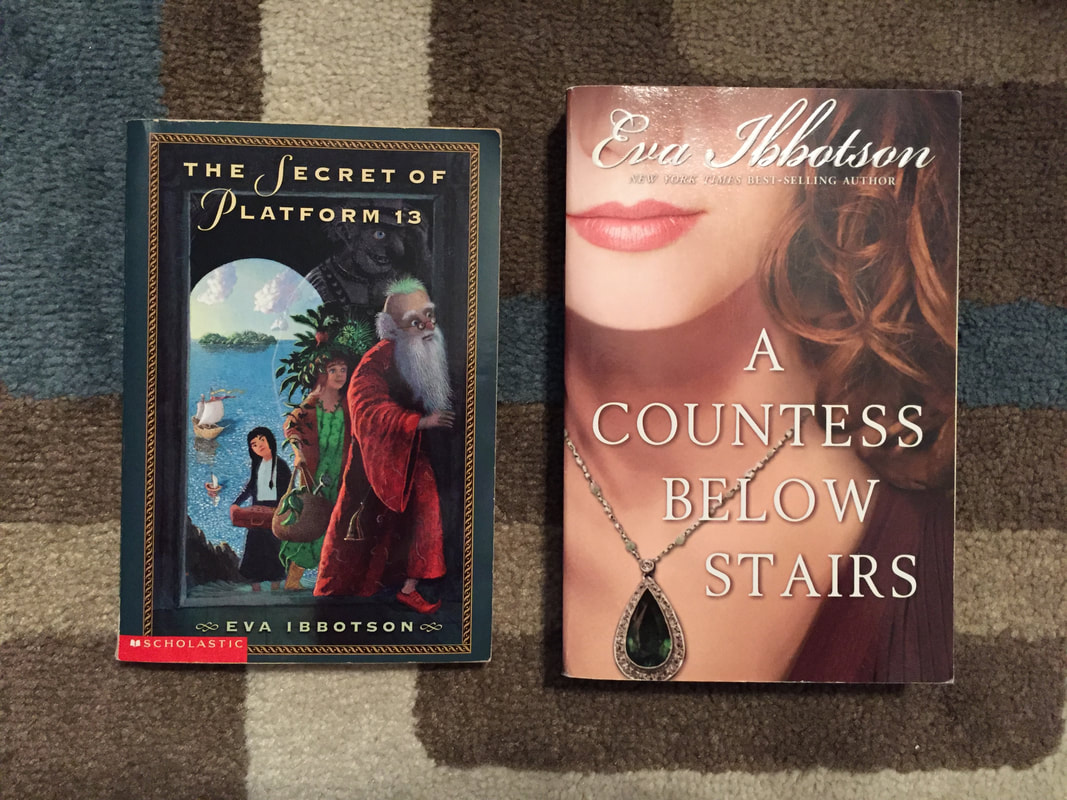
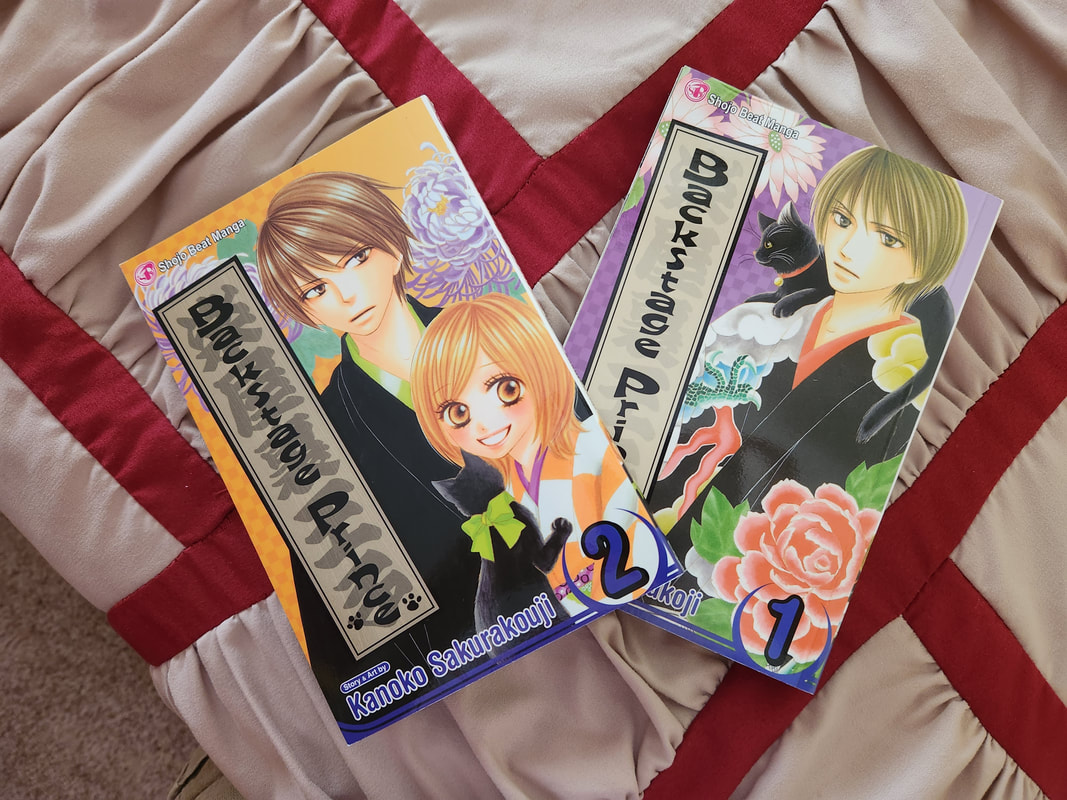
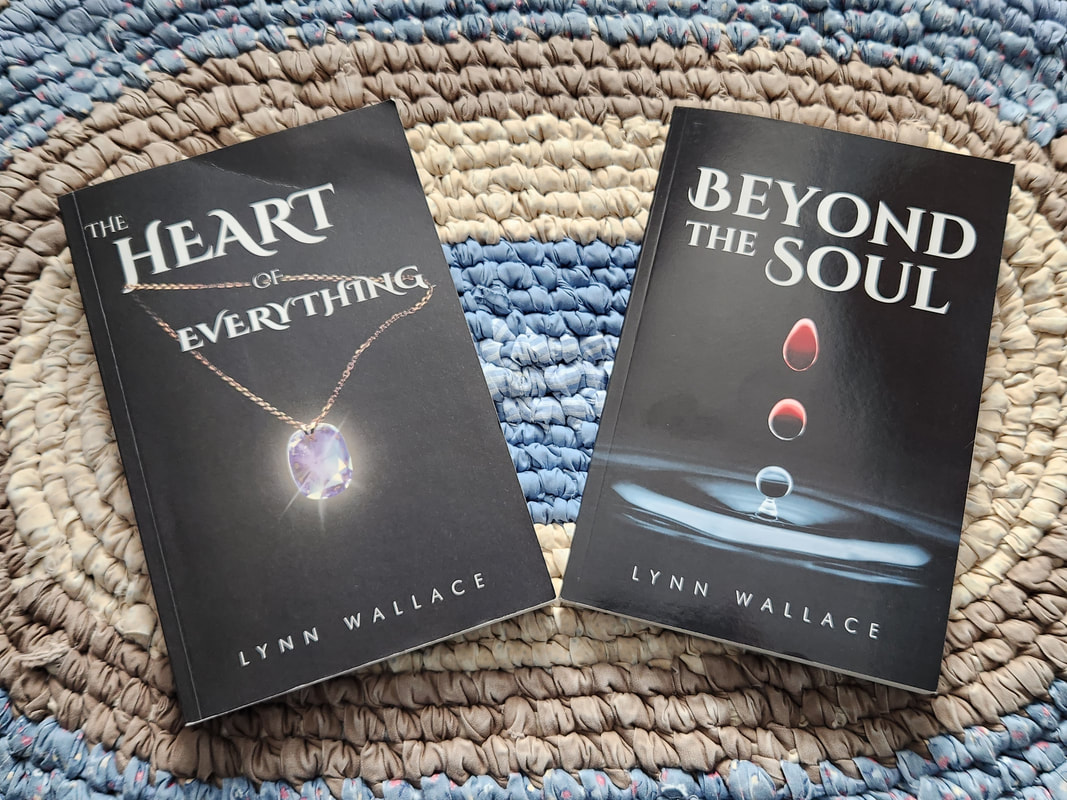
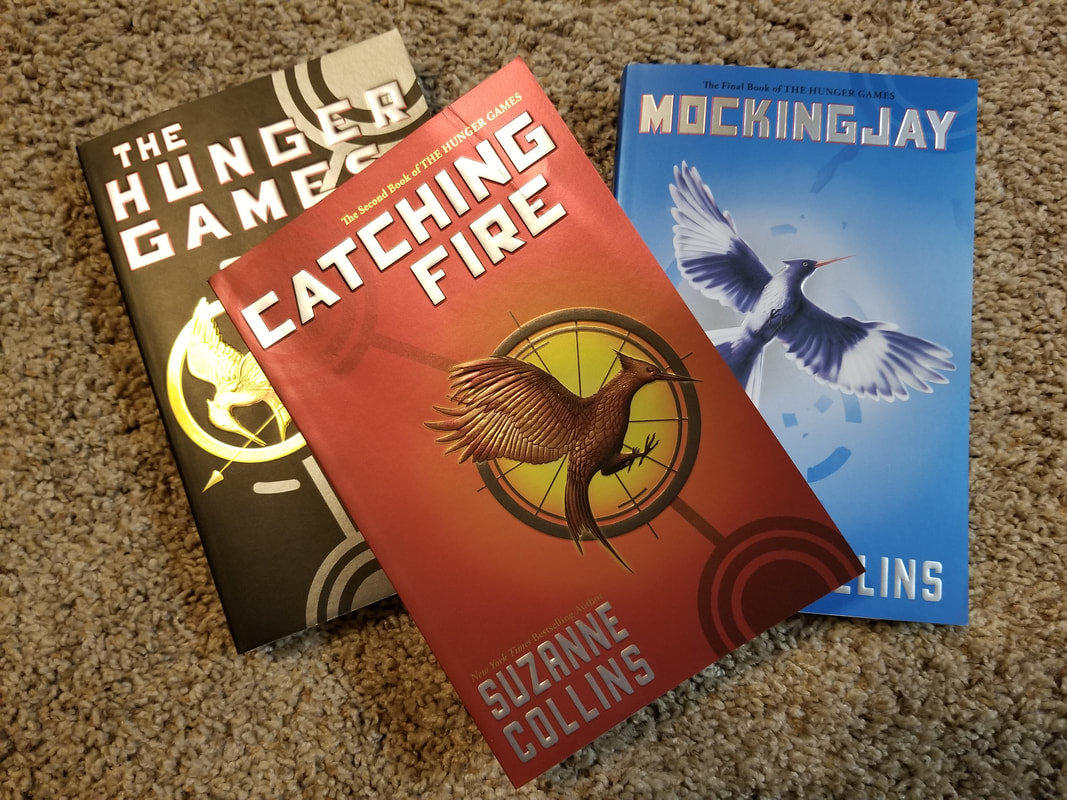
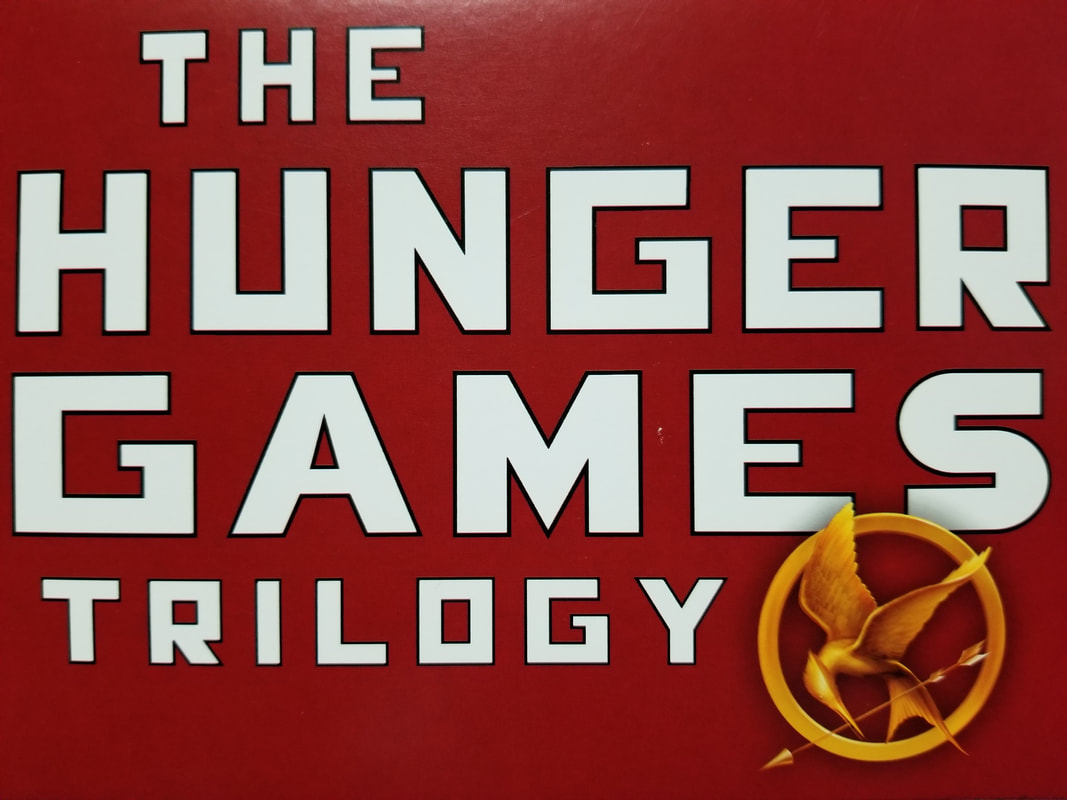
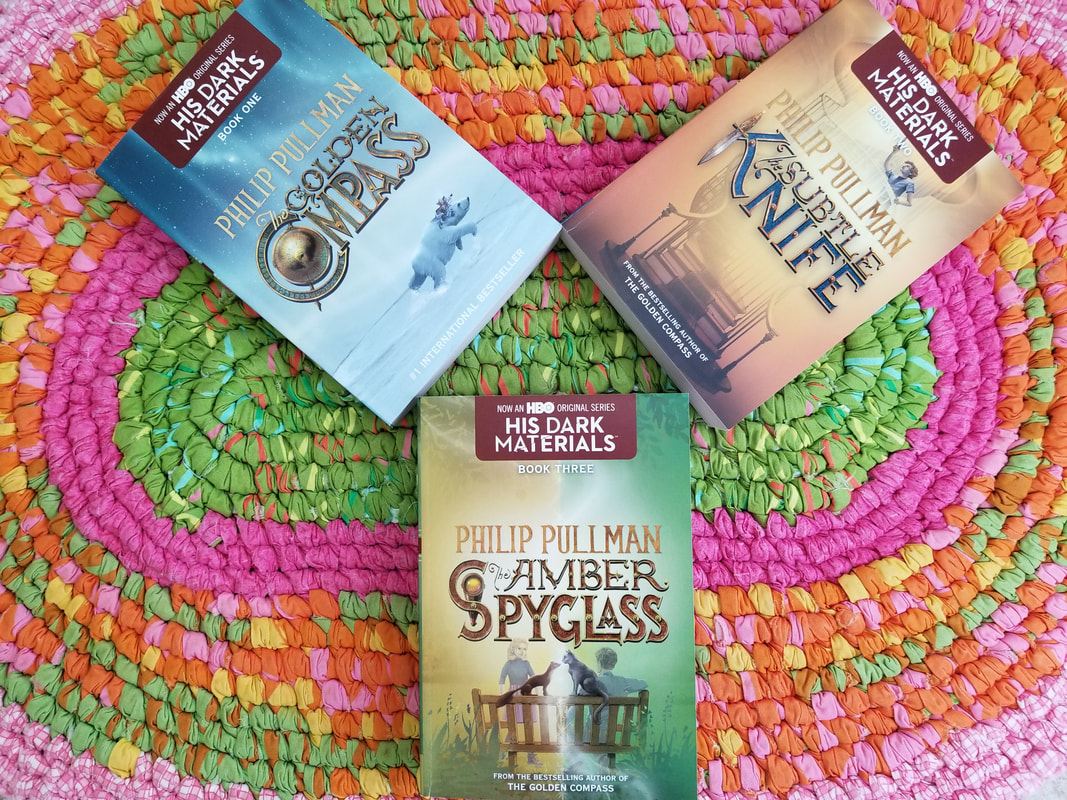
 RSS Feed
RSS Feed